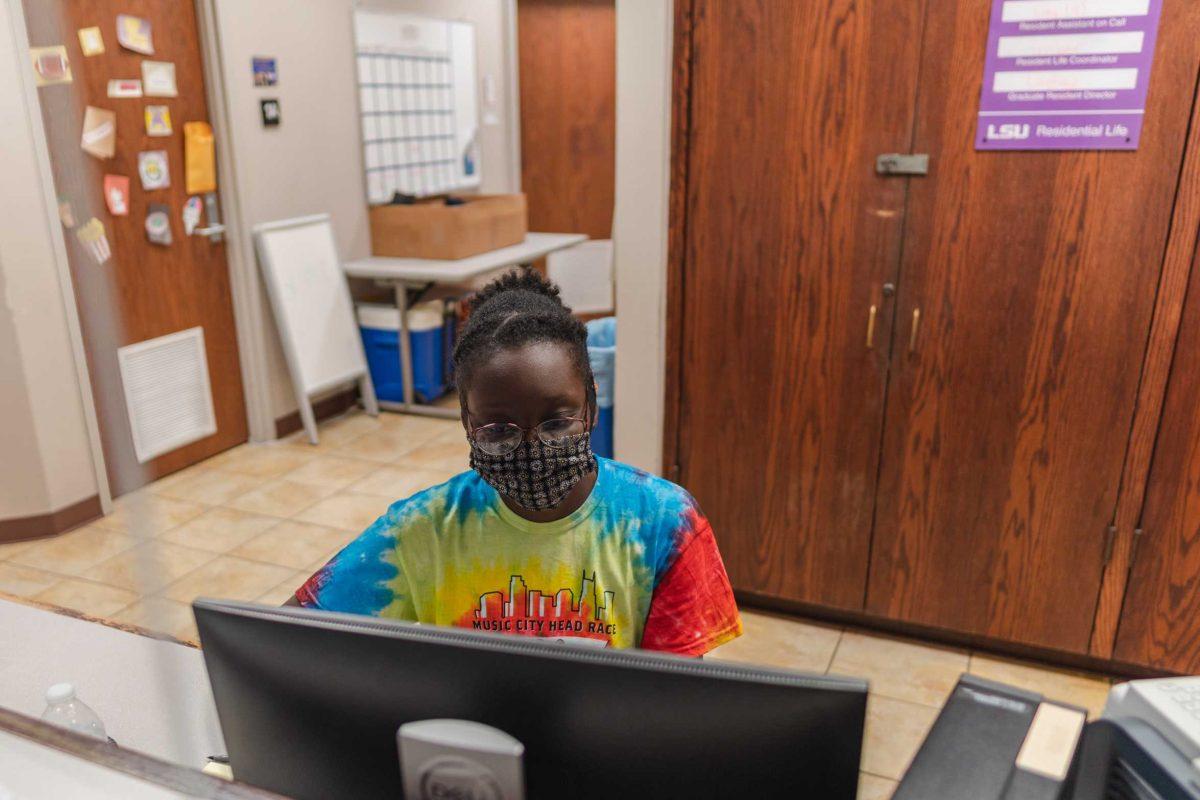At the beginning of this semester, psychology sophomore Patrick O’Neill was working around 45 hours per week in addition to his classes.
Like many students, O’Neill started working while in college to pay for basic necessities and has worked a variety of jobs, including restaurants and his uncle’s catering company. Along with being vice president of a club, he currently works as a desk assistant and holds a position with LSU’s General Military Course.
Financial stress is a common problem among college students, with the 2015 National Survey of Student Engagement reporting 63% of students feel “worried about having enough money.” In addition to the preexisting stress of financial independence, college tuition is on the rise. The American Association of University Professors reported a 36% increase in average tuition and fees at public four-year universities from 2017-18, despite the median family income rising less than 10%. High tuition prices have essentially forced many students to work multiple jobs.
AAUP found that working over 20 hours a week is shown to lead to lower grades and retention rates in college students. O’Neill started worked at Outback Steakhouse to pay for flying lessons to fulfill his dream of becoming an Air Force pilot, but he quickly felt the impact it had on his education. He had to quit his job after a month in order to keep up with schoolwork.
“It kind of sucked, I had no social life,” O’Neill said. “Just going into the weekend knowing that I wouldn’t be able to experience a regular college life [and go to] football games or just being able to finish my homework, it lowered my morale.”
After quitting his job at Outback Steakhouse, O’Neill found himself happier and less stressed. Now that he has more time, he’s seen a noticeable improvement in the quality of his coursework and his grades.
Psychology freshman Kayla Melerine found that working as a full time student adds another stress factor to her schedule. Since the beginning of the semester, Melerine has worked in the LSU admissions department, where she answers phones and emails.
Melerine works 15 hours a week, which she says gives her less time for sleep and schoolwork and can make her schedule overwhelming at times.
“I think it stresses me out a bit more, it gives me less time to study and I have to get up at eight in the morning sometimes,” Melerine said.
Lack of sleep is a common problem among working students, as they often have to sacrifice sleep in order to keep up with schoolwork.
Despite only being at LSU for a few months, psychology freshman Jacy Faraldo has already worked two jobs. Faraldo worked as a desk assistant at Laville Hall and now serves as an assistant sound engineer for the LSU School of Music.
In the first month of her freshman year, Faraldo was working 10-12 hours a week, but eventually quit her job at Laville because of the late hours. She would often work midnight shifts, which left her little time to sleep before class.
“The hours were really inconvenient. I really did not like working at 2:00 a.m.,” Faraldo said.
Many students take advantage of work-study positions on campus, for which they are typically paid minimum wage and usually have time to study while on the job. Like many students, Faraldo does not believe she is paid enough for the work she does, but has to continue working to cover expenses.
Although working can be overwhelming, Faraldo believes it’s beneficial for students in some aspects, noting that having a job helped refine her time management skills.
“Nobody likes working, but it’s a good thing to do,” Faraldo said.
O’Neill also found that having a job has helped him use his time more wisely. While working, he often felt that there were not enough hours in the day to accomplish everything he needed to do.
“That’s when you realize every second of the day is precious,” O’Neill said.
In 2019, the United States student loan debt exceeded $1.6 trillion. To combat this problem, AAUP recommends that more resources be allocated to universities in order to reduce unmet financial need, which would relieve financial stress among students. They also encourage promoting need-based grant aid and scholarships and offering academic support services.
O’Neill warns students not to take on so many jobs like he did.
“Choose your priorities wisely,” O’Neill said. “I worked to sustain something on the side that really isn’t a priority or a necessity… school is always going to come first.”





